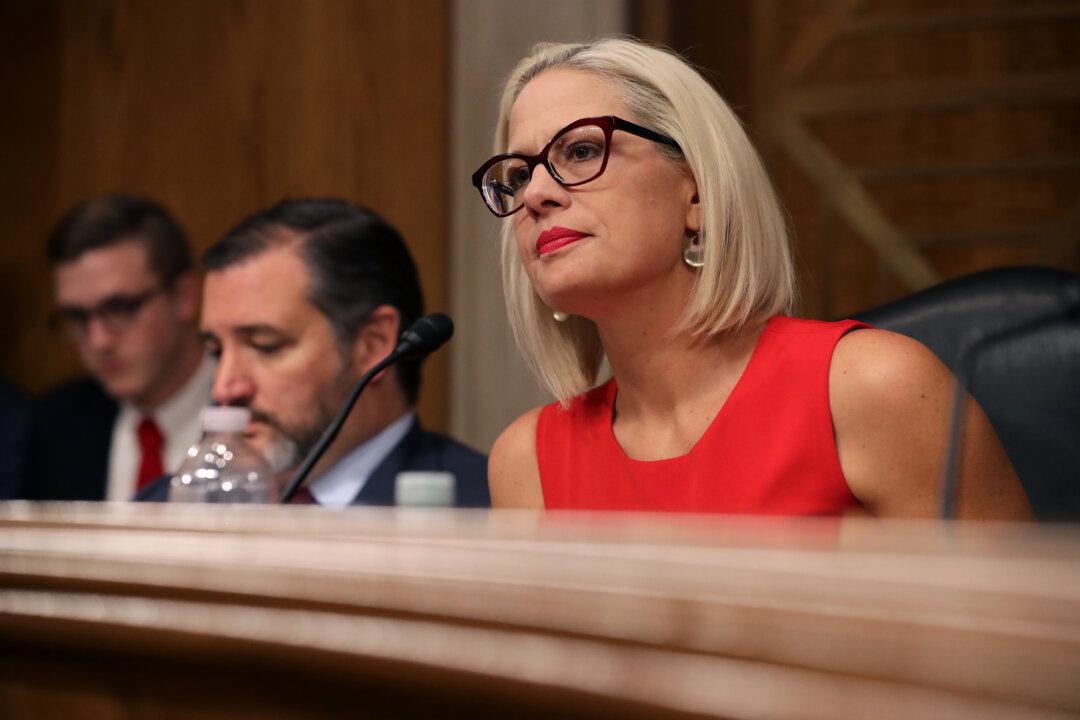WASHINGTON—Parents of infants under 1 year of age or adopted children of any age could receive in advance up to $5,000 of their child tax credit to help cover expenses under a bipartisan bill introduced Dec. 4.
The “Advancing Support for Working Families Act” was unveiled during a joint Capitol Hill news conference by Sens. Bill Cassidy (R-La.), Kyrsten Sinema (D-Ariz.), and Shelley Moore Capito (R-W.Va.), as well as Reps. Colin Allred (D-Texas) and Elise Stefanik (R-N.Y.).





